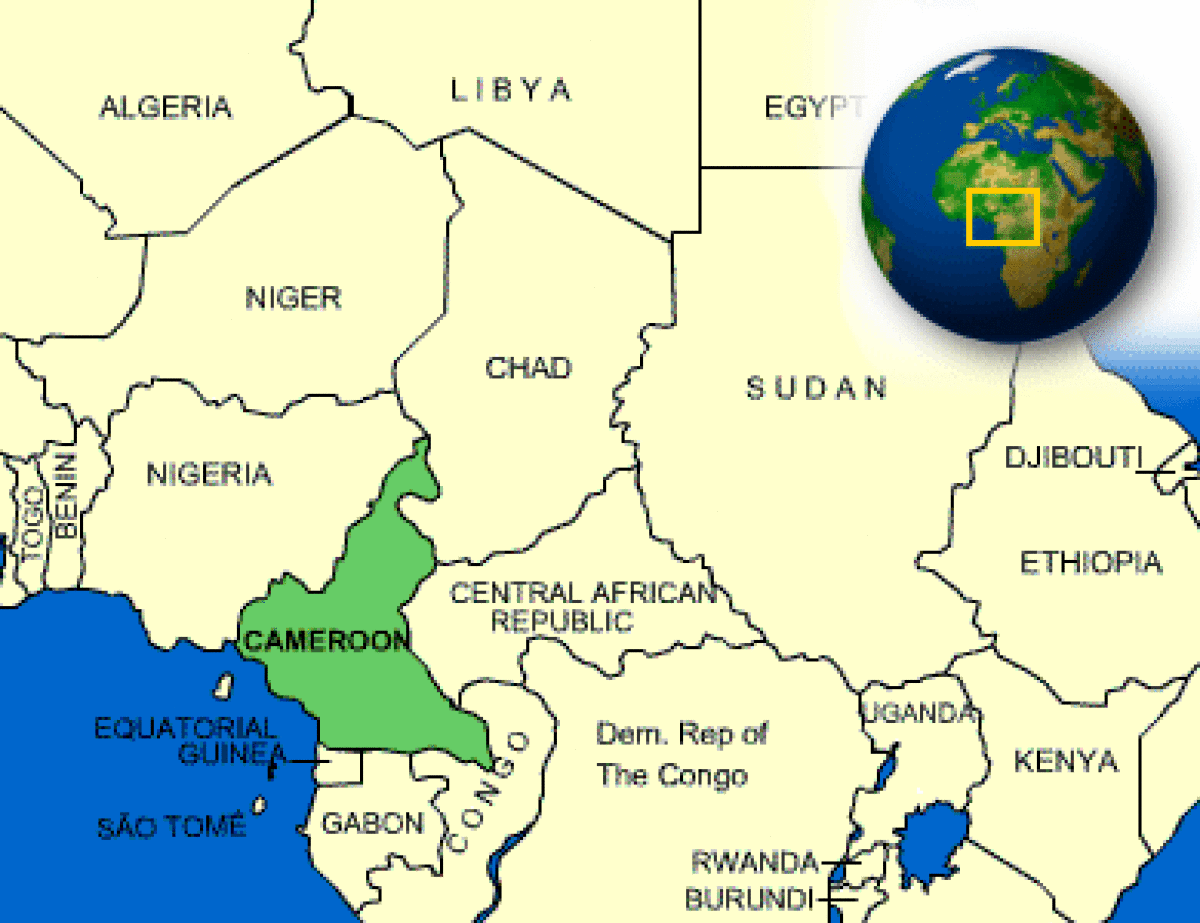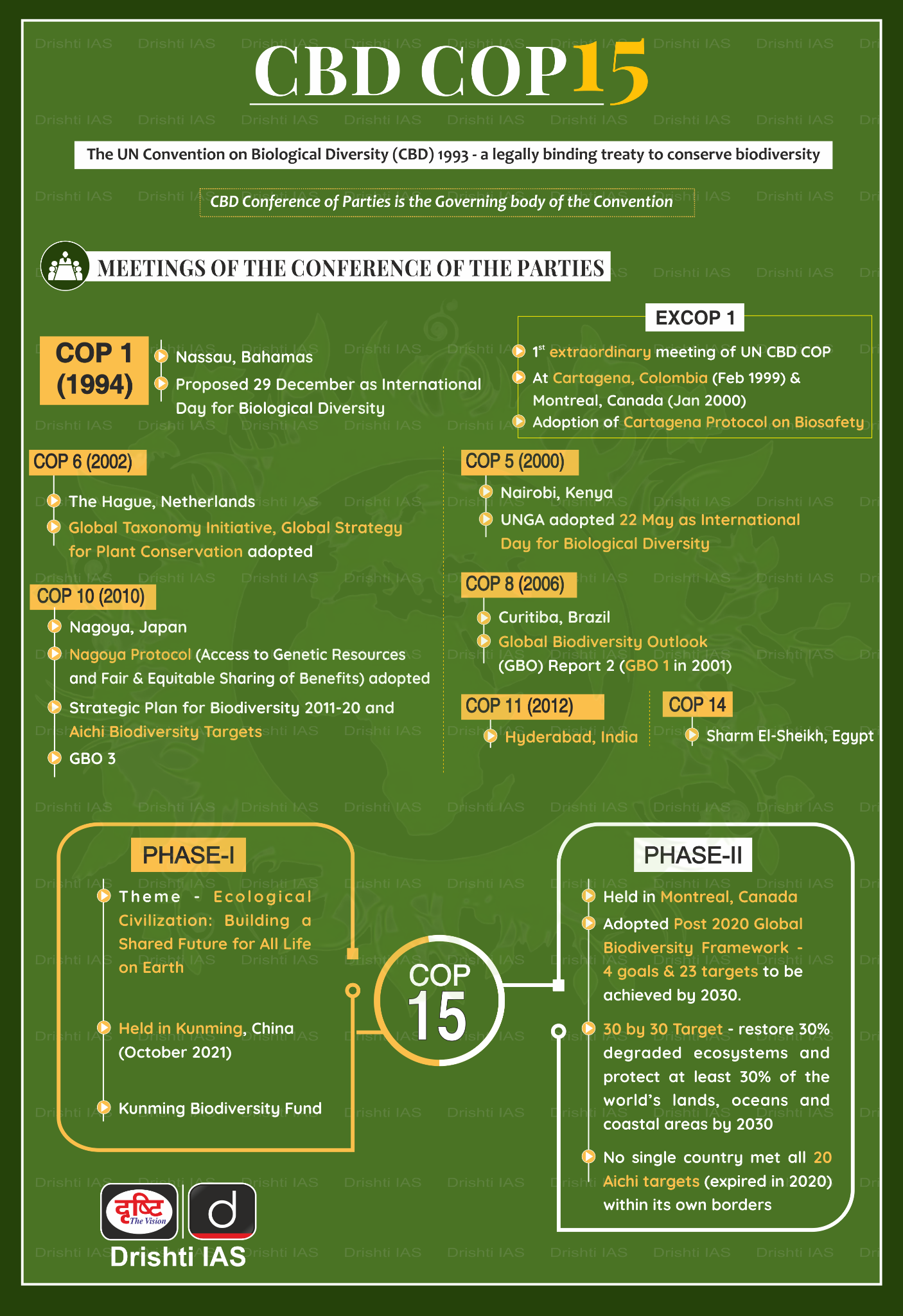Important Facts For Prelims
Cameroon Adopts Nagoya Protocol
- 08 Feb 2024
- 6 min read
Why in News?
Cameroon, located in central Africa and boasting a rich biodiversity with around 11,000 species of plants, animals, and microorganisms, has recently adopted the Nagoya Protocol on Access and Benefit Sharing, an agreement under the United Nations Convention on Biological Diversity (UNCBD).
- The Nagoya Protocol aims to promote the fair and equitable sharing of benefits arising from the utilization of genetic resources.
What was the Need for Cameroon to Adopt Nagoya Protocol?
- Preserving Traditional Knowledge:
- Many of plants, animals and microorganisms contain useful genetic information or genetic resources, such as genes for producing medicines or crops. The knowledge, innovations and practices of indigenous and local communities related to these resources are called traditional knowledge.
- Preventing Biopiracy and Equal Sharing of Resources:
- Both genetic resources and traditional knowledge are valuable for bioprospecting, which is the exploration of biological material for new sources of drugs, food or other products. Bioprospecting can also help to conserve and sustainably use biodiversity. For Example:
- Prunus Africana, a plant endemic to Cameroon, is used to make drugs for prostate cancer but foreign companies buy a kilogramme of it USD 2.11 and sell the drugs made from it for USD 405.
- Cameroon’s Bush Mango is a wealth of medical properties. The leaves, roots and bark are used to treat scabs and skin pain. The fruit has attracted the interest of European pharmaceutical and cosmetic companies.
- Both genetic resources and traditional knowledge are valuable for bioprospecting, which is the exploration of biological material for new sources of drugs, food or other products. Bioprospecting can also help to conserve and sustainably use biodiversity. For Example:
- Benefiting Local Communities:
- None of the companies’ profits benefited the communities where the plants were harvested.
- Adopting the Nagoya Protocol aids in safeguarding the rights and interests of indigenous and local communities while fostering innovation and development based on biodiversity.
What is the Nagoya Protocol Under UNCBD?
- Convention on Biological Diversity (CBD):
- The CBD, a legally binding treaty to conserve biodiversity has been in force since 1993 which has 3 main objectives:
- The conservation of biological diversity.
- The sustainable use of the components of biological diversity.
- The fair and equitable sharing of the benefits arising out of the utilization of genetic resources.
- Nearly all countries have ratified it (notably, the US has signed but not ratified).
- India enacted Biological Diversity Act, 2002 for giving effect to the provisions of the CBD.
- The CBD Secretariat is based in Montreal, Canada and it operates under the United Nations Environment Programme.
- The Parties (Countries) under Convention of Biodiversity (CBD), meet at regular intervals and these meetings are called Conference of Parties (COP).
- In 2000, a supplementary agreement to the Convention known as the Cartagena Protocol on Biosafety was adopted.
- The Protocol seeks to protect biological diversity from the potential risks posed by living modified organisms resulting from modern biotechnology.
- The CBD, a legally binding treaty to conserve biodiversity has been in force since 1993 which has 3 main objectives:
- Nagoya Protocol:
- The Nagoya Protocol on Access to Genetic Resources and the Fair and Equitable Sharing of Benefits Arising from their Utilization (ABS) was adopted in 2010 in Nagoya, Japan at COP10.
- It not only applies to genetic resources that are covered by the CBD, and to the benefits arising from their utilization but also covers traditional knowledge (TK) associated with genetic resources that are covered by the CBD and the benefits arising from its utilization.
- Along with the Nagoya Protocol on Genetic Resources, the COP-10 also adopted a ten-year framework for action by all countries to save biodiversity.
- Officially known as “Strategic Plan for Biodiversity 2011-2020”, it provided a set of 20 ambitious yet achievable targets collectively known as the Aichi Targets for biodiversity.
- The Kunming-Montreal Global Biodiversity Framework (GBF) was adopted during the 15th Conference of Parties.
- The Framework includes four goals to be achieved by 2050 and twenty-three targets set for 2030.
UPSC Civil Services Examination, Previous Year Questions (PYQs)
Q. “Momentum for Change: Climate Neutral Now” is an initiative launched by (2018)
(a) The Intergovernmental Panel on Climate Change
(b) The UNEP Secretariat
(c) The UNFCCC Secretariat
(d) The World Meteorological Organisation
Ans: (c)
Q. What is/are the importance/importances of the ‘ United Nations Convention to Combat Desertification' ? (2016)
- It aims to promote effective action through innovative national programmes and supportive international partnerships.
- It has a special/particular focus on South Asia and North Africa regions, and its Secretariat facilitates the allocation of major portions of financial resources to these regions.
- It is committed to a bottom-up approach, encouraging the participation of local people in combating the desertification.
Select the correct answer using the code given below:
(a) 1 only
(b) 2 and 3 only
(c) 1 and 3 only
(d) 1, 2 and 3
Ans: (c)
Mains:
Q.1 How does biodiversity vary in India? How is the Biological Diversity Act, 2002 helpful in conservation of flora and fauna? (2018)
Q.2 What is meant by ‘environmental ethics’? Why is it important to study? Discuss any one environmental issue from the viewpoint of environmental ethics. (2015)






